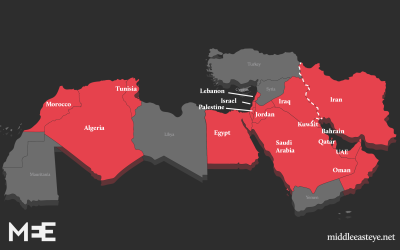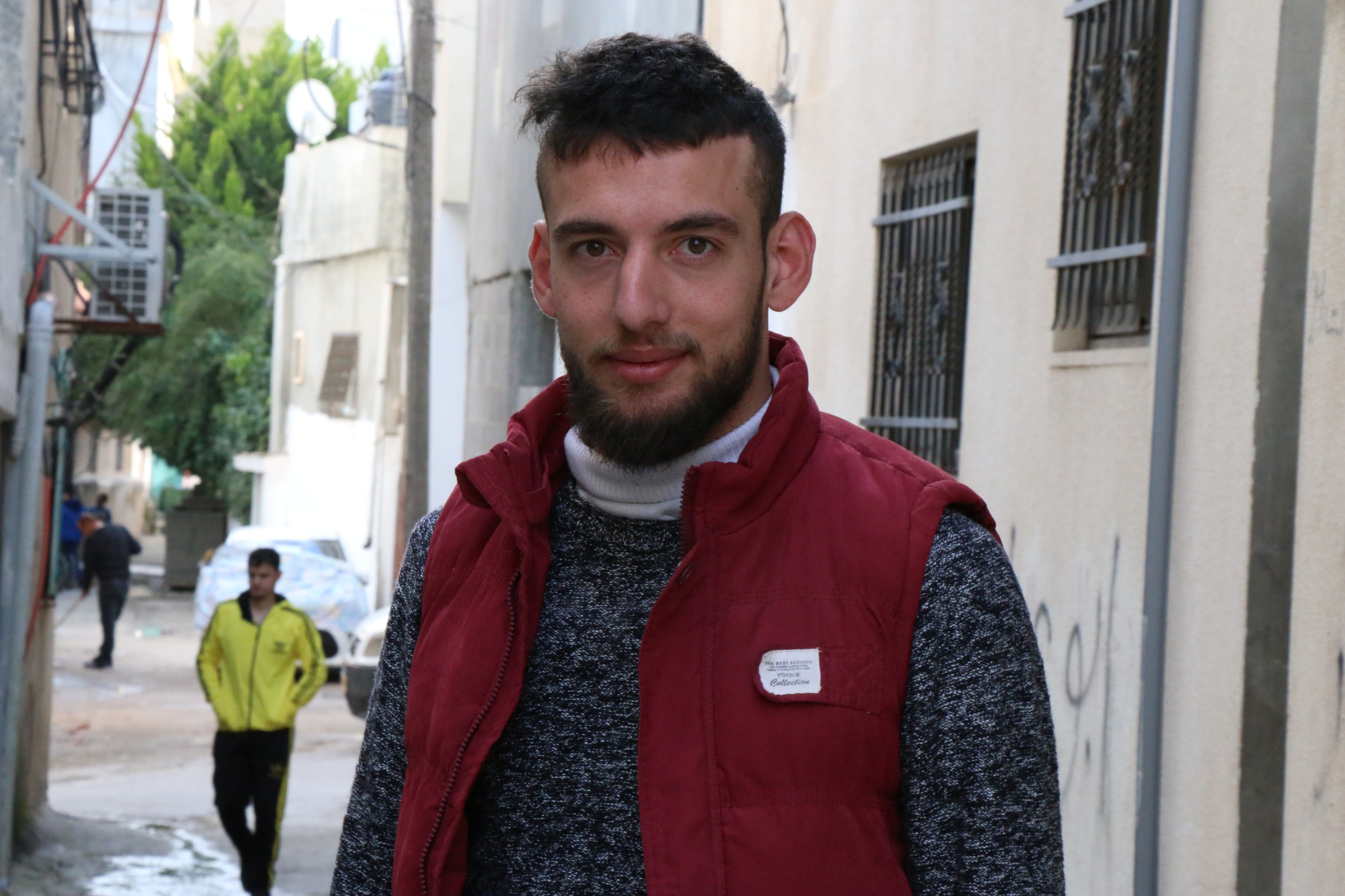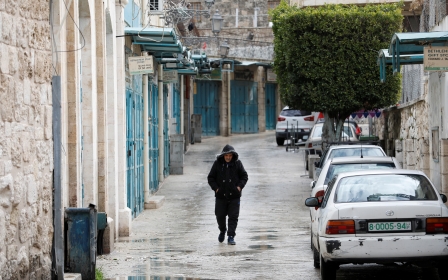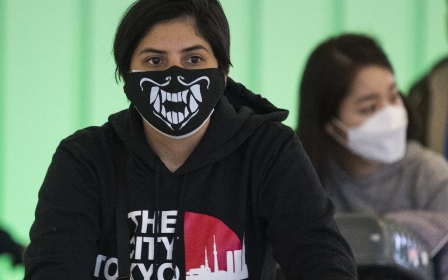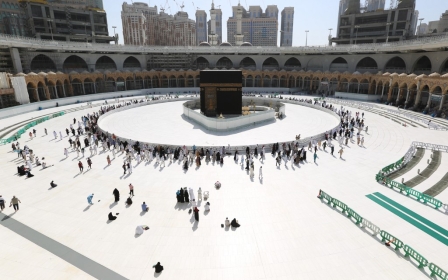Bethlehem responds to coronavirus ‘the Palestinian way’ - with sweets and song
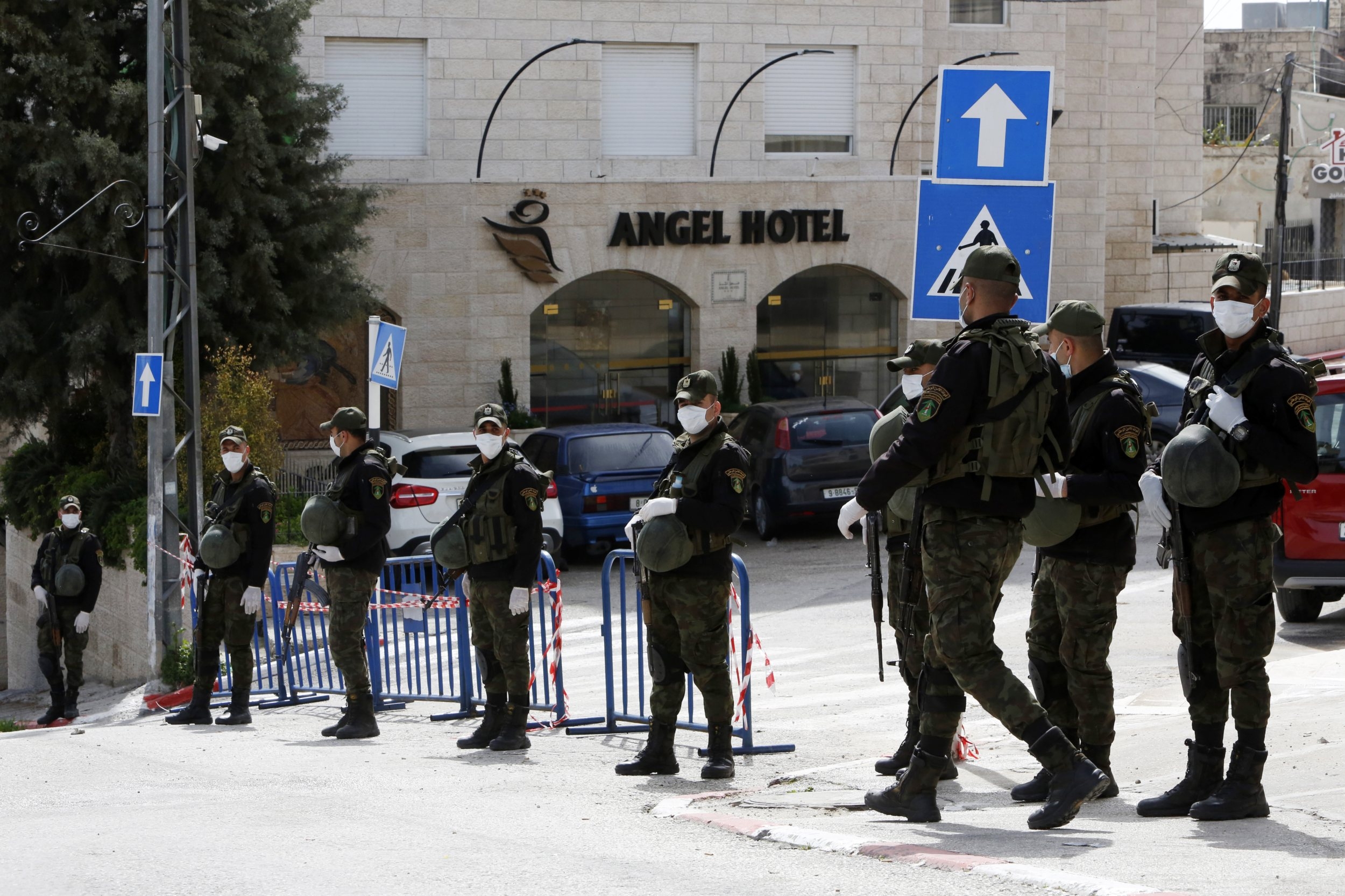
Nestled between the sloping hills of Beit Jala, the sister town of Bethlehem, is the Angel Hotel - the epicentre of the coronavirus epidemic in the occupied West Bank city.
The hotel is “ground zero” for the city’s outbreak, after seven of its staff members were diagnosed with coronavirus, which they caught after coming into contact with a group of Greek tourists who stayed at the hotel.
New MEE newsletter: Jerusalem Dispatch
Sign up to get the latest insights and analysis on Israel-Palestine, alongside Turkey Unpacked and other MEE newsletters
Since the first seven cases were announced on 5 March, the number of confirmed patients has risen to 20, all of whom are Palestinian residents of Bethlehem.
The city has since been placed on lockdown by the Palestinian Authority (PA).
Of the 20 cases, 16 were being quarantined in the Angel Hotel, along with 15 American tourists who are believed to have come into contact with those carrying the virus according to the PA.
The hotel has become somewhat of a spectacle in the city, as curious residents of Bethlehem pass by in their cars, trying to get a glimpse at the hotel past the police barricades and dozens of mask-clad PA soldiers.
But while the scenes outside the hotel seem like something straight out of a chilling science-fiction film, the people stuck inside the hotel have been telling a different, much more positive story.
Palestinian hospitality takes over
Photos of pastries, fruit smoothies and traditional Palestinian dishes flood the Facebook page of Phyllis McDuffie Creel, one of the Americans under quarantine at the Angel Hotel.
Creel travelled to Bethlehem as part of a mission trip with her Alabama-based church group, which stayed at the hotel for the duration of their stay in Bethlehem.
But on the morning the 13-people group was supposed to leave, it was ordered to stay for a 14-day quarantine at the hotel to ensure none of them were infected.
'This is a way of showing love to our city and solidarity with the people who are now sick'
- Rajwan Ibdeir, sweets store owner
The visitors, however, have looked on the bright side. Since the hotel was closed off on Thursday, local Palestinian restaurants and residents have been flooding it with medical supplies, personal hygiene products, and most importantly, food.
“Amazing community! These 13 Americans love all of you!” Creel said in one of many posts on Facebook praising the local community for their hospitality towards those quarantined at the hotel.
“Thank you to all of the Palestinian community of Beit Jala for the love and kindness that you have shown the 13 Americans during our stay at the Angel Hotel!” Creel wrote alongside a photo of a boxed fried chicken meal from a popular Beit Jala restaurant.
In another post, Creel shared a photo raving about traditional Palestinian dessert knafeh sent to the hotel by local knafeh giant Fawaniss. “Cannot say thank you enough!” she wrote.
Rajwan Ibdeir, 44, the owner of Fawaniss, told Middle East Eye that he didn’t think twice about sending knafeh and other sweets to people in quarantine.
“We are trying to support the people to fill in the gaps that may be the government cannot,” Ibdeir said. “This is a way of showing love to our city and solidarity with the people who are now sick that have supported our business for years.”
Ibdeir said he was thrilled to see people like Creel thanking his restaurant and posting photos of his knafeh, but emphasised that “we didn’t do this to show off, we did this because it is our responsibility as Palestinians.
“It doesn’t matter if they are Americans, Africans, Europeans, or Arabs. We know they need help, so it is part of our culture to help them and support them,” Ibdeir said.
MEE was unable to reach Creel. Local sources reported that her group was transferred out of the hotel and to Tel Aviv airport to go back to the US after their tests for COVID-19 came back negative.
‘It’s the Palestinian way’
In a video that has been shared widely on Facebook, Beit Jala mayor Anton Salman holds his phone up to reporters so they can hear the voice on the other end of the line - Angel Hotel owner Nancy al-Arja.
After an overwhelming amount of supplies and food were sent to the hotel, Arja can be heard urging the people of Bethlehem to coordinate with local authorities before sending any more packages.
Arja’s pleas came after a group of young men from Aida refugee camp in Bethlehem arrived at the doors of the hotel in a solidarity procession, blasting uplifting music as they delivered fresh juices and other parcels to the hotel steps.
“It was an act of solidarity, to show the people in quarantine that we are not scared of them, and that we stand by them no matter what,” 24-year-old law student Muhannad Abu Srour, who participated in the procession, told MEE.
Abu Srour said the idea started small within a group of friends, but soon grew as more and more people in the community expressed their desire to contribute.
“We collected donations from people so we could send fresh juices, snacks, toothbrushes, toothpaste, and other clothing items that they may need,” Abu Srour said.
When he saw members of the American group and fellow Palestinians stuck in the hotel posting positive things about their act of kindness, Abu Srour said he felt a sense of validation.
“This type of act is not novel for the Palestinian people,” he said. “If you have something, you share it with others. This is the Palestinian way.
'This type of act is not novel for the Palestinian people. If you have something, you share it with others
- Muhannad Abu Srour, Beit Jala
“For hundreds of years, despite all the adversity we have faced, we are still a welcoming and hospitable people,” Abu Srour continued.
“If you have something, you share it with others. It doesn't matter if they are foreigners or Arabs. They all need to feel our support, so that’s why we did it,” he said.
Abu Srour expressed hope that his actions, and the actions of others like him would not only help change American perceptions of Palestinians, but send a message to communities around the world who are dealing with the coronavirus.
“For those who are seeing what’s happening in Bethlehem, we ask you to pray for us, and to learn from our experience,” he said.
“Be kind to one another. Don’t let fear take over. Support one another and we will get through this difficult time.”
Middle East Eye delivers independent and unrivalled coverage and analysis of the Middle East, North Africa and beyond. To learn more about republishing this content and the associated fees, please fill out this form. More about MEE can be found here.


